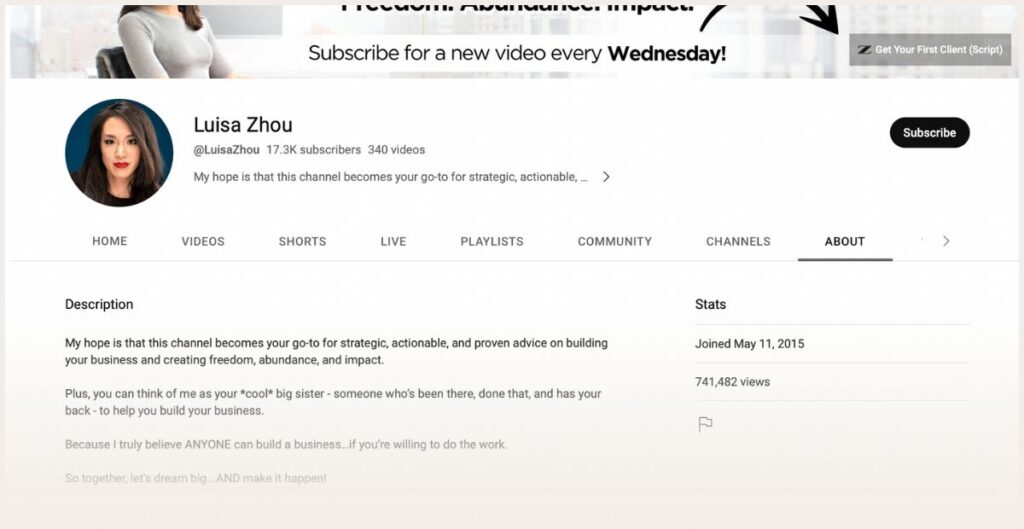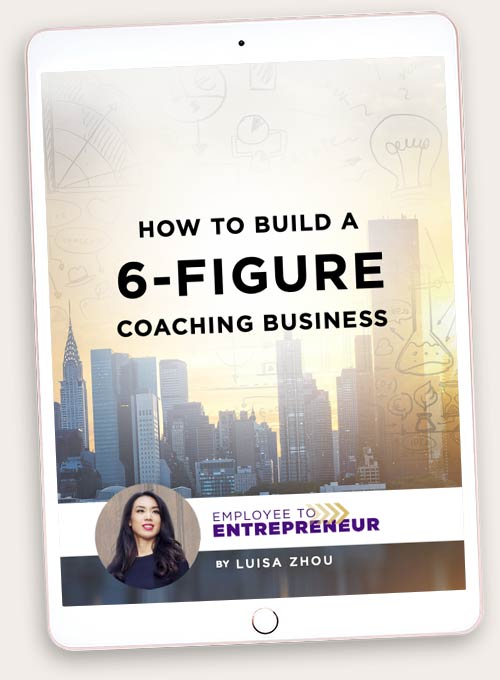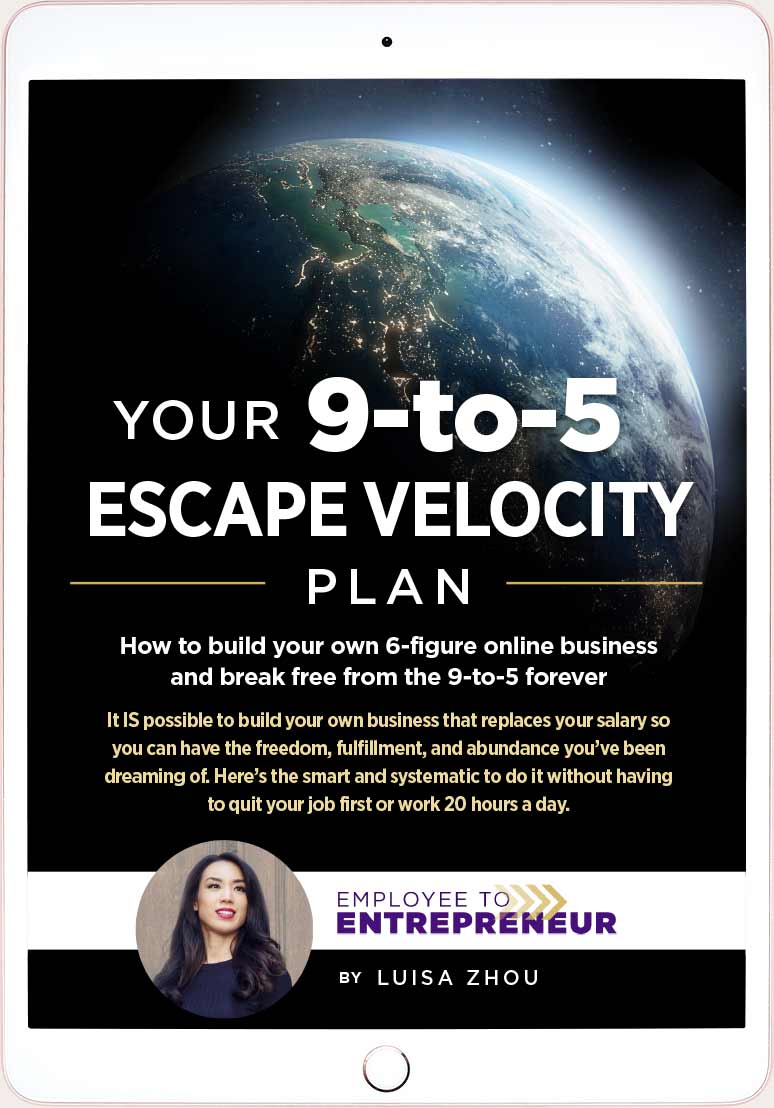Want to learn how to write a coaching philosophy?
Today, you’ll learn:
- What a coaching philosophy is
- Why you might need one
- How to write and use one
Want to learn more? Let’s go!
What is a coaching philosophy?
What is the definition of a coaching philosophy?
A coaching philosophy is a statement (or even a few sentences) about your coaching. Think of it as an elevator pitch that touches on your values, approach, purpose, beliefs, and principles.
The International Coaching Federation, ICF’s, code of ethics says that coaches should “adhere to the philosophy of “doing good,” versus “avoiding bad.””
I look at it a little bit differently.
To me, a coach’s philosophy is your unique coaching approach, plus your “why” and values.
Your approach, or methodology, is how you use your experiences and skills in your coaching practice to help your clients reach their goals quickly and sustainably.
My methodology is what I’ve coined as “coach-sulting.”
It involves me sharing my own experience to illustrate how I got the results they’re working toward, and I find that it’s a much more effective form of coaching that allows my clients to reach their goals more quickly.
You can learn more about my coaching methodology in this video:
As another example, my student, David,a health coach, helps his clients reach their weight loss goals using herbs. That methodology is part of his coaching philosophy.
To shape your philosophy, you also need your “why” and your values – those things that guide your coaching.
For instance, one of my core values is integrity. And that’s a key part of my coaching philosophy.
You might be wondering if you really need to spend time coming up with a coaching philosophy. Here’s how a coaching philosophy can help you.
Why is a coaching philosophy important?
Your coaching philosophy is similar to what I call your “secret sauce” – in other words, that special thing you offer that helps your clients reach their goals and see results over and over again, coupled with your values and beliefs.
It’s what sets you apart from your competition.
Whether you realize it or not, you have something that sets you apart from other coaches in your industry.
For example, some of my clients are relationship coaches with successful businesses – but none of them have the same secret sauce.
One student, Ruby, helps “nice guys” land the woman of their dreams while another, Briana, helps her students navigate attachment in adult relationships.
Get the Ultimate Guide
for building a
6-Figure Coaching Business so you can achieve more freedom!
And that’s just the beginning.
Their skills and experiences are what help their clients find success. But their philosophy – their “secret sauce” – is what helps them stand out from most coaches.
For example, Briana’s approach to helping people with their attachment issues is based on addressing body, mind, and spirit and her values are based on empathy and caring for her clients. This philosophy helps her stand out from all the other businesses that help people find fulfilling relationships.
Now, it’s time to figure out what your secret sauce is.
What is your coaching philosophy?
To figure out your own coaching philosophy, think about what you’re offering your clients – the results they get from working with you. Merge that together with your “why” and your unique values and you have your coaching philosophy.
When writing your philosophy, remember that it should grab your potential clients’ attention – it’s important not to fill it with jargon or make it boring or irrelevant.
Instead, show what your business is about in a way that clicks with your audience. Focus on what your clients are working toward and your values.
If you’re stuck, take a look at your mission statement for inspiration. Your mission statement is your “why” and your philosophy adds on your unique coaching methodology.
What are you committing to do for your clients before, during, and after your coaching sessions? What are the benefits of working with you?
Now it’s time to find out: What is an example of a coaching philosophy?
5 examples of coaching philosophies
What does a good coaching philosophy look like?
Let’s walk through a few of my favorite coaching philosophy examples.
I’ll start with my own.
As a coach, my philosophy is all about helping people start businesses that allow them to create the kind of life they want. How do I do it?
By doing things differently.
I focus on specific strategies, constantly test to find out what’s working and what’s not, and, most importantly, stay grounded in integrity.
What do I mean by that? I practice only what I preach.
In other words, I teach others to build businesses because I’ve done it myself and know what works.
I scaled my coaching business in just a year and made over $1 million in sales. I’ve helped thousands of entrepreneurs scale their businesses to 6- and 7-figures through actionable business advice.
And I’m not the only one! Let’s take a quick look at some of my students’ coaching philosophies.
Career coaching
My student Emily Liu is a career happiness coach who believes that people can have a career they love even if they don’t check every box on the application.

Her “secret sauce” is that she’s a former recruiter and headhunter for companies like Google and Amazon – which means that she knows exactly what it takes to get noticed during your job search. She helps her clients by focusing on the right strategies and the right mindset.
Emily ultimately believes that loving your job, where you spend a third of your time every day, is incredibly important.
All these three elements (the what, the how, and the why) create her unique coaching philosophy.
Relationship coaching
Briana MacWilliam, who I mentioned earlier, is a well-known relationship expert, author, and course creator.

Her mission is to help adults understand their attachment style in relationships by using a psycho-spiritual approach that involves cognitive reframing, body activation, and arts-based experiential.
Her ”secret sauce” is her unique method of exploration, The MacWilliam Method.
Her philosophy is her secret sauce together with her empathetic approach.
Law school consulting
Another of my students, Mara Freilich, serves as a law school admissions consultant.

Her mantras are part of what help to set her apart:
- Everyone has a unique and powerful story
- The best law school is not the same for everyone
- You can do a lot of things wrong and still be okay
But her secret sauce? How she helps people who don’t necessarily have the “perfect” scores get accepted into competitive law schools.
Some of her values include being in a team with her clients and always supporting them. That’s what her philosophy is all about.
Financial coaching
Finally, let’s take a look at Ryan Chaw, a real estate coach who started out as a student of mine.

Ryan has worked to become a real estate investor and has built up a multiple six-figure portfolio filled with 10 single-family homes.
Today, he helps his clients avoid the mistakes he made along the way (like having to spend $40,000 on repairs and improvements) so they can find success and build passive income more quickly.
Part of his “secret sauce” is that he does so in a way that helps them achieve financial freedom with his unique student housing model.
One of his core values is integrity, and together these two elements make up his philosophy.
We’ve covered a handful of coaching philosophy statements, so let’s get you ready to write your own. Sound good?
Now, as for what should be included in a coaching philosophy… let’s dive in!
How do you write a coaching philosophy? 5 steps
What should a coaching philosophy include?
Get the Ultimate Guide
for building a
6-Figure Coaching Business so you can achieve more freedom!
Writing a solid coaching philosophy doesn’t have to be complicated.
Let’s break down the five steps to creating a picture-perfect statement.
Hint: It’s all about what makes you different.
1. Identify what sets you apart
As a coach, what makes you different from your competition is a massive part of your philosophy.
You might not think you’re very different, but you are! Consider your personality, background, and experience – that’s what will set you apart.
I didn’t think I’d stand out either when I was starting my business, but the truth is, my experience was unique. I built my first online business while working a full-time job (something my competitors hadn’t done), had a unique background, and shared how I liked to watch trash TV… which humanized me.
2. Determine how your “secret sauce” is different
This goes back to everything we’ve just talked about. What is it about your own experience and abilities that are going to help you stand out big-time in your client’s buying journey?
3. How are your values and beliefs different?
What’s most important to you when you think about what you believe? What could you talk about all day long?
One of my most strongly-held beliefs is that anyone is capable of building the kind of six- or seven-figure business they want… as long as they’re willing to put in the work.
And that’s what drives my coaching!
Being clear about that belief is what allows me to create strong relationships with my customers while differentiating myself from a life coach who might be more focused on another element of business building.
4. Figure out what makes your audience different
Now that you’ve narrowed down what it is about you, your values, and your beliefs that set you apart, it’s time to focus on your audience.
Just like no two niches are the same, no two coaching audiences are the same!
To really connect with your audience, you need to determine who they are and what they care about.
It’s a lot like if you were going out for lunch and could choose between McDonald’s or Sweetgreen.
McDonald’s is geared toward more price-conscious customers, so the food and customer service won’t be anything to write home about. But the customer knows this and doesn’t mind so long as they’re getting their food!
On the other hand, Sweetgreen customers are far less price-conscious and more focused on their health, so the experience and food will be far different because their audience cares more about a luxurious, healthy meal.
When you’ve figured out who you’re selling to, you’re ready to take the final step!
5. Determine how your product is different
Whether you’re going to be a coach or sell a course that allows people to guide themselves through the process, you need to make it clear why your product is different from anything else on the market.
Maybe it’s more comprehensive, comes with better service, or helps clients reach their goals faster.
Whatever it is, that difference is your selling point!
It doesn’t have to be complicated.
When I was starting out, I decided my differentiator would be that my course would be the most comprehensive on the market – and it still is.
Once you’ve combined your five answers to create your philosophy, it’s time to actually put it to work.
How do you use your coaching philosophy?
So, how and where do you actually use your coaching philosophy?
In a word: Everywhere.
It clearly outlines how you approach coaching and what sets you apart, so it’s important to make sure everyone knows.
Above all, it should be on your website and marketing materials. But it’s short enough to include on your website and across social media, including Instagram, Pinterest, Youtube, Facebook, and LinkedIn.
At the end of the day, there’s nowhere it can’t go.
For example, here’s how I use a snippet on my YouTube channel:

Next steps
Now that we’ve covered everything philosophy-related, it’s time for you to come up with your own.
But while a coaching philosophy can help you gain clarity on what it is you offer, it’s not something you should get stuck on right off the bat.
After all, you WILL get clarity on your coaching as you coach.
A bigger priority (if you want a coaching business that brings freedom and flexibility) is to build your business.
How?
Get my free blueprint to growing your own six-figure coaching business:

Want to Build a 6-Figure Coaching Business So You Can Achieve More Freedom?
When you sign up, you’ll also receive regular updates on building a successful online business.
Learn more:








